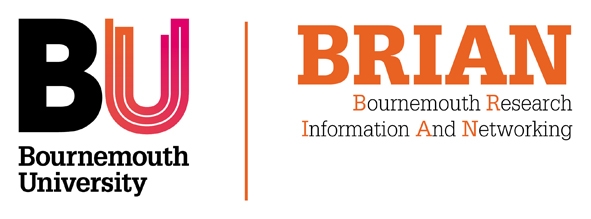
You’ll all be really glad to know that BRIAN is now up and running! If you encounter any issues, please do send an email to BRIAN@bournemouth.ac.uk.
Latest research and knowledge exchange news at Bournemouth University

You’ll all be really glad to know that BRIAN is now up and running! If you encounter any issues, please do send an email to BRIAN@bournemouth.ac.uk.


Introduction
The four main HE funding bodies in the UK believe that ‘the outputs of publicly funded research should be freely accessible and widely available.’ The REF2021 Open Access Policy was introduced as a requirement for the next REF and it states that – all journal articles and conference contributions (with ISSN) accepted for publication from 1 April 2016 and published on or before 31 December 2020 must comply with the policy to be eligible for submission to the REF.
What does this mean?
Any non-compliant outputs that do not satisfy the policy requirements will NOT be eligible for the next REF.
What are the policy requirements?
What does this mean to you at BU?
Once you’ve received an official notification from your publisher that your manuscript has been accepted, you should take action right away!
First of all, you should ensure that the publication record is created in BRIAN – Bournemouth Research Information and Networking, clearly specifying the acceptance date. Once you’ve created a record, following instructions on the screen, click on the BURO deposit page as shown below –

To comply with the REF Open Access Policy, you only need to upload/deposit the final accepted peer-reviewed manuscript (and not the final published version). However, depending on individual publisher copyright and policies, this is not always the case. To verify the publisher copyright policies and to decide which version of your manuscript you should use, you can do so through the SHERPA RoMEO online resource, which is a reliable source of information recommended by Research England.
Some of these deposited manuscripts may also be subjected to a period of embargo before they can be made available. Again, this would depend on the publisher copyright policies, which you can also check out on SHERPA RoMEO.
On the ‘Deposit’ page in BRIAN, you will see this message –

BURO, which stands for Bournemouth University Research Online is the University’s Institutional Repository. All manuscripts uploaded on BRIAN will be deposited in BURO and are available to anyone in the world with internet access (subject to embargo).
BURO is supported by a team of colleagues from the Faculty Library Team. The BURO team is available to support and advise you through the open access compliance process and to ensure that you are compliant with all publisher copyright and policies.
Do remember, this process has to be done within three months of your publication acceptance date! Please see this video for more guidance.
What do embargo periods mean for compliance?
As mentioned above, use SHERPA RoMEO to find out more about deposit policies and embargo periods. As long as your manuscript is deposited within 3 months of the acceptance date, the REF2021 Open Access Policy allows for an embargo period of up to 12 months for the REF Panels A & B and 24 months for the REF Panels C & D.
What if the output doesn’t meet the compliance requirements?
In some circumstances, some outputs cannot meet the open access policy requirements due to deposit, access, technical or other issues (for more information see here). If these circumstances fall under the permitted exceptions in accordance with the REF Open Access policy, these outputs may still be submitted to the REF. If you are unsure, please seek advice and guidance from ref@bournemouth.ac.uk as early as possible.
If you have questions regarding REF2021 or Open Access compliance, please feel free to contact ref@bournemouth.ac.uk or if you have questions specific to uploading of your manuscript, please contact BURO@bournemouth.ac.uk.
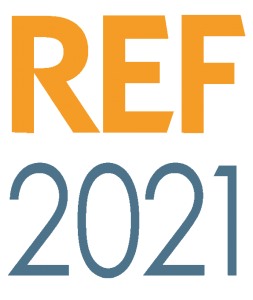 Last year BU established a number of internal review panels to review and assess our research outputs and impact case studies to help us prepare for our upcoming submission to the Research Excellence Framework (REF) 2021.
Last year BU established a number of internal review panels to review and assess our research outputs and impact case studies to help us prepare for our upcoming submission to the Research Excellence Framework (REF) 2021.
The panels below would like to add to their membership. Expressions of interest are invited from academic staff who are interested in being a Panel Member for the following Units of Assessment (UOAs):
Those interested should identify which UOA Panel they would like to be considered for and put forward a short case (suggested length of one paragraph) as to why they are interested in the role and what they think they could bring to it. EoIs should be emailed to ref@bournemouth.ac.uk by close of play on 21st January 2020.
UOA Teams would particularly welcome EoIs from those who have:
Full details of the role, the process of recruitment and terms of reference for the panels themselves can be found here.
Any queries regarding a specific panel should be directed to the UOA Leader. General enquiries should be directed to Shelly Anne Stringer, RDS.
The understanding of human anatomy is vital to the delivery of healthcare. In medical education, this has historically been done through direct dissection of human cadavers by medical students or close observation of such dissection by an anatomist. This helps with the development of a comprehensive understanding of the three-dimensional relationships of the structures human body in health and disease. The intricate complexity of the human nervous system, combined with the vast range of neurological diseases make this area one of the most challenging for medical education.
The computer animation and visualisation skills already at BU offer a unique opportunity to develop a suite of tools ready for the influx of medical students using immersive virtual reality and mixed reality techniques. The primary aim of the project is to develop a medical teaching platform that provides an anatomically correct three-dimensional teaching tool using virtual reality and mixed reality such as Microsoft’s HoloLens 2. This will facilitate a deeper understanding of the human body in real individuals. The platform will be developed to allow immersion in a range of clinical scenarios and provide virtual training for students to supplement live clinical experience. This approach will be supported with modular teaching tools and case scenarios derived from real cases and outcomes. Future developments of the platform will include decision support tools, case recording and data analytics tools to support machine learning and personalised actionable analytics.
The project will blend cutting-edge animation/visualisation techniques with digital health approaches with human-centred design principles to provide a platform to train the next generation of healthcare professionals. The project aim is to build on work already undertaken between BU and NHS organisations in Dorset to develop a blended reality platform for undergraduate medical teaching and postgraduate training. Large clinical datasets from existing data repositories in Dorset will be used to train machine learning driven education and decision support tools using supervised learning. Prospective clinical data collection using the de-identification/re-identification pipeline being developed as part of the Dorset informatics strategy will be subjected to unsupervised learning approaches to evaluate and improve accuracy.
The project is funded through HEIF6 running from November 2019 until July 2022. Please contact Dr Xiaosong Yang (xyang@bournemouth.ac.uk) or Dr. Rupert Page (Rupert.Page@poole.nhs.uk) if you have any questions about the project.
 With the aid of QR funding (Faculty of Management), I conducted field-research in Ubud, Indonesia in July 2019. I went into the field with two research questions, linked to poverty alleviation and sustainable community development. What is the impact of spiritual/wellness tourism on local people and communities in Ubud? What are the strategies that can help provide micro-entrepreneurship opportunities for the poor? I interviewed multiple stakeholders including a former Indonesian Minister of Tourism, a spiritual leader in Ubud, a representative of the Ubud home stay association, local yoga teachers and other private/public stakeholders. I also talked to a representative of a rural orphanage.
With the aid of QR funding (Faculty of Management), I conducted field-research in Ubud, Indonesia in July 2019. I went into the field with two research questions, linked to poverty alleviation and sustainable community development. What is the impact of spiritual/wellness tourism on local people and communities in Ubud? What are the strategies that can help provide micro-entrepreneurship opportunities for the poor? I interviewed multiple stakeholders including a former Indonesian Minister of Tourism, a spiritual leader in Ubud, a representative of the Ubud home stay association, local yoga teachers and other private/public stakeholders. I also talked to a representative of a rural orphanage.
According to the World Bank data, out of a population of around 264 million, about 25.9 million Indonesians still live below the poverty line. Based on March 2018 data, approximately 20.19% of the entire population remains vulnerable of falling into poverty, as their income hovers marginally above the national poverty line. Although Indonesia’s poverty rate is 9.8%, in 82 villages out of Bali’s 706 villages, the poverty rate hovers above 35% (Laos, 23.2%; Myanmar, 24.8%.). In Bali, growth has often been curtailed due to natural disasters such as volcanoes and earthquakes as well as water shortages.
During my field-research, I learned from the informants that the rapid tourism growth and development have pushed out poorer locals to the margins. The poor have been losing their land due to the development of international hotels, resorts and yoga centres, which are mostly owned and managed by foreigners. The suicidal rates have gone up and the numbers of orphans have been increased. As an illiteracy rate is very high in Ubud as well as other rural villages, people in the margins do not have opportunities to benefit from the tourism boom. There is an urgent need for the local government and other organisations to alleviate poverty by developing education and training programmes.
As an ECR, I appreciate that BU’s QR funds help to facilitate and to explore important global challenges and develop local partners. Over the summer, we were able to successfully submit an external grant for further research and present our preliminary findings at the Royal Geographical Society Conference in London. In line with BU 2025 and the UN SDGs, I hope our research can help achieve SDG #1 No Poverty and #11 Sustainable Communities in rural Indonesia and beyond in real life, and make the impact that the rural poor deserve.
Academia has become more demanding than twenty years ago, particularly, the job outwith university. Just this morning I received three requests to review a paper. Each from a very reputable journal and a each a legitimate requests, i.e. I asking me to assess a paper in a my academic field. 
Reviewing papers and grant applications is, of course, part of my academic responsibilities, and hence part of my scholarly practice. But I am already reviewing five NIHR (National Institute for Health Research) grant applications this weekend, as well as an other paper for BMC Pregnancy & Childbirth, and there are two PhD theses next my bed which I need to exam. On top of this I have been ignoring several reminder invitations to review a research proposal for the Croatian Science Foundation, as I simply do not have time to do so, however, much I would like to do so.
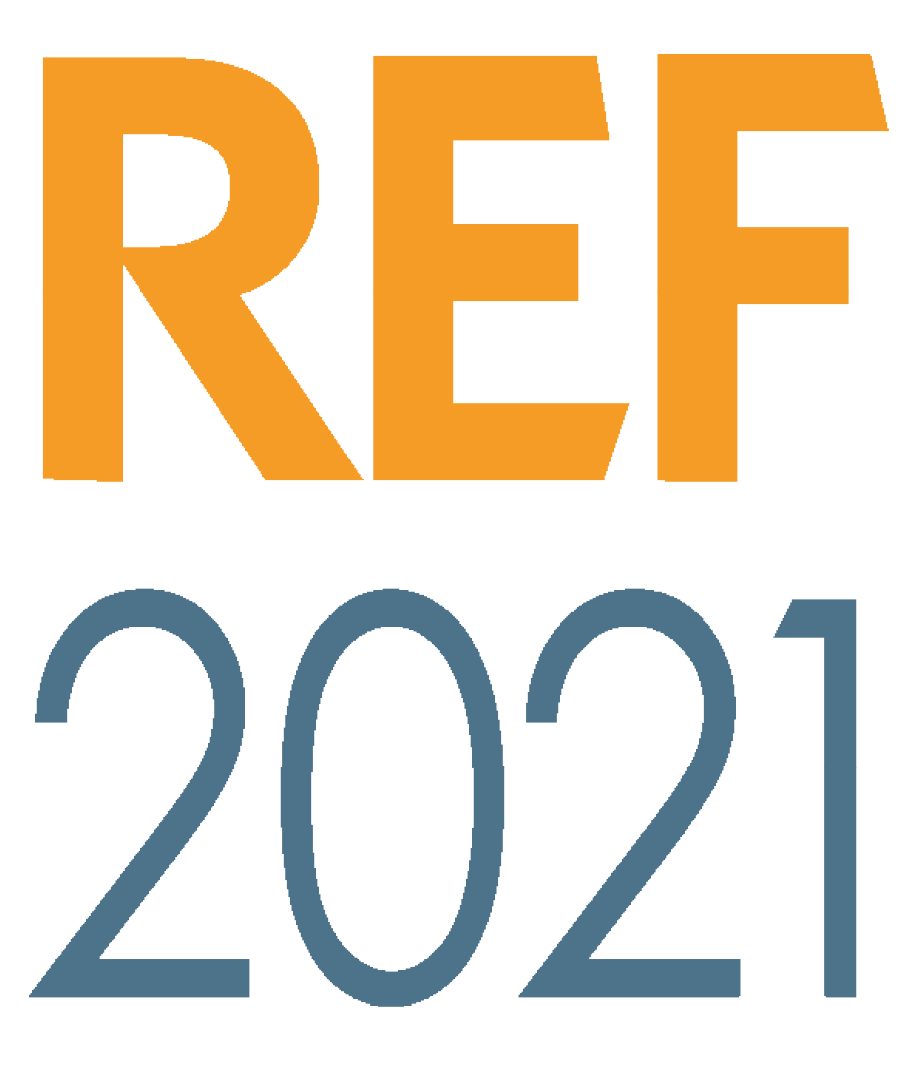 The forthcoming REF 2021 is not helping. UK academics are frantically submitting their manuscripts to academic journals to have them in print before the end of 2020, to beat the REF 2021 deadline. The flip-side of this reviewing coin is that my collaborators and I have had three papers turned down in the past year by a reputable journal as it could not find appropriate reviewers. Three articles on three very different aspects of our work, one a UK-based study, one a European study and one a study based in Nepal. For two of these manuscripts the journal took nearly a year to come back to us, wasting the chance to submit the paper elsewhere.
The forthcoming REF 2021 is not helping. UK academics are frantically submitting their manuscripts to academic journals to have them in print before the end of 2020, to beat the REF 2021 deadline. The flip-side of this reviewing coin is that my collaborators and I have had three papers turned down in the past year by a reputable journal as it could not find appropriate reviewers. Three articles on three very different aspects of our work, one a UK-based study, one a European study and one a study based in Nepal. For two of these manuscripts the journal took nearly a year to come back to us, wasting the chance to submit the paper elsewhere.
Perhaps it is due the rose-tinted spectacles of looking at the past, perhaps is it simply my level of seniority (compared to twenty years ago) but I don’t think so. The underlying trend is that the volume of papers submitted to journals is growing faster than the number of academics volunteering to review. This blog is, therefor, also a call for my academic colleagues to step up and agree to review on (extra) paper. Interestingly, I made a not dissimilar call in a BU Research Blog eight years ago! Unfortunately, the overall situation has not improved.
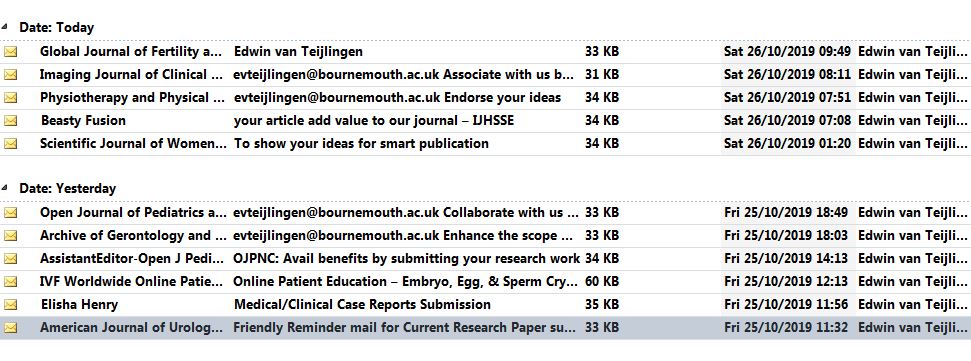 I haven’t even mentioned the exponential growth in email requests to academics submit papers to so-called predatory journals! I counted 15 requests in the past two days alone and it is only 10 AM on Saturday morning so more to follow later today.
I haven’t even mentioned the exponential growth in email requests to academics submit papers to so-called predatory journals! I counted 15 requests in the past two days alone and it is only 10 AM on Saturday morning so more to follow later today.
Prof. Edwin van Teijlingen
CMMPH
 As usual, RDS will host an annual UK Research Office visit to BU in 2019. This year’s event has been scheduled for November; the reason is obvious – Brexit!
As usual, RDS will host an annual UK Research Office visit to BU in 2019. This year’s event has been scheduled for November; the reason is obvious – Brexit!
All academic staff interested in EU funding are invited to attend the event:
Monday 18th November Fusion Building – FG06 from 11:00 – 14:30. Lunch will be included.
Dr Andreas Kontogeorgos, European Advisor of the UK Research Office will be discussing with us the impact of Brexit on EU funding opportunities. Academics are welcome to submit any other EU funding related topics for discussion to Ainar Blaudums by the end of October.
UKRO delivers subscription-based advisory service for research organisations and provides MSCA and ERC National Contact Point services in the UK. As part of UKRO services, BU members of staff may sign up to receive personalised email alerts and get early access to EU funding related publications on UKRO portal.
Please contact Organisational Development to book a place.
Businesses and health researchers can apply for up to £20 million to develop new diagnostic tools based on linking technologies, data and systems.

This competition is part of the Industrial Strategy Challenge Fund’s £120 million Data to Early Diagnosis and Precision Medicine Challenge.
The challenge aims to fund researchers and industry to combine data and real-world evidence from UK health services and create new products and services that diagnose diseases earlier and more efficiently.
Innovate UK and the Medical Research Council, as part of UK Research and Innovation, have up to £17 million to invest in collaborative consortia developing integrated diagnostics. Cancer Research UK has a further £3 million to invest in cancer-related projects.
Summary:
Deadline : 25 September 2019
Eligibility : Businesses of any size may apply, and consortia must include at least 1 NHS or academic partner and 1 SME
Please see this link for more information.
Are you planning to submit a grant application to NIHR?
We are holding a one-day event at the Knowledge Spa, Truro, Cornwall on Tuesday 8 October that is aimed at helping you to improve your chances of success..
The morning seminar session is open to anyone to come and hear RDS advisers give presentations on what makes a good grant proposal. Topics covered will include:
The afternoon support session of one-to-one appointments is for those who would like to discuss their own proposal with an RDS adviser.
This event is FREE and refreshments and lunch will be provided. Places are limited and will be allocated on a ‘first come, first served’ basis. In order to secure your place please register using our online form by 1pm, 25 September 2019. Find out more.
And don’t forget, your local branch of the NIHR RDS (Research Design Service) is based within the BU Clinical Research Unit (BUCRU) on the 5th floor of Royal London House. Feel free to pop in and see us, call us on 61939 or send us an email.

As part of BU’s public engagement activity BU’s Marketing and Communications (M&C) Team will again have a presence at the Bournemouth Air Festival, which sees tens of thousands of visitors each year. For BU, the purpose will be to raise our profile and showcase the activity we do as part of our outreach activity in schools and colleges. As part of this, M&C will be running activities which are accessible, participative and relevant to the audience, but we also want to showcase BU’s research to demonstrate the impact we have on our community locally, regionally or internationally – again, all relevant to the audience and a chance to position BU’s research specialisms, breadth and impact.
Members of BU’s outreach and corporate communications team will be on the stand each day of the festival and there is an opportunity to join us for a couple of hours to talk about your research with the public. The event runs from Thursday 29 August to Sunday 1 September . If you are free to join us at some point over these 4 days, M&C can arrange the necessary pass, help in transporting any display materials you may wish to have on the stand during your visit and promote through our social media channels before and during the festival. There will also be a couple of tables under a covered stand on the main promenade.
It would be great to engage with the public on a range of areas of BU research and if you are interested in joining us please contact Ella Thompson athompson3@bournemouth.ac.uk in M&C and she will be able to plan your visit into our timetable.
Hardly ever does a research trip go smoothly and completely to plan. Our latest trip to Nepal was no different. It started really with a delay, I had the money for a flight in the spring, but I really could not find the time to leave Bournemouth University for a three-week trip.
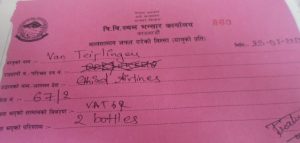 The first little hiccup of this summer’s fieldwork trip, during the monsoon, occurred on arrival at Kathmandu Airport on 23 July. I normally bring three bottles of whisky as a present for my PhD former students and fellow researchers in Nepal. These are bought during my stop-over in the Middle East and this always worked well until this year. This time I was stopped on arrival by a very apologetic customs officer who informed me that the rules for bringing alcohol into Nepal had changed since the beginning of this year and that I could only bring in one bottle. I received a lovely certificate for the two bottles I had to leave behind (see photo).
The first little hiccup of this summer’s fieldwork trip, during the monsoon, occurred on arrival at Kathmandu Airport on 23 July. I normally bring three bottles of whisky as a present for my PhD former students and fellow researchers in Nepal. These are bought during my stop-over in the Middle East and this always worked well until this year. This time I was stopped on arrival by a very apologetic customs officer who informed me that the rules for bringing alcohol into Nepal had changed since the beginning of this year and that I could only bring in one bottle. I received a lovely certificate for the two bottles I had to leave behind (see photo).
The second little hiccup was that one of the three research dissemination meetings we had hoped to organise in Kathmandu could not take place. Unfortunately, the organisation we had been collaborating with had not managed to finalise the research report on time. We had also hoped to meet up with staff at Social Science Baha. We have submitted the final draft manuscript for our next book to them and wanted to discuss progress, but the director was unfortunately out of the country.
Further little hiccups were more mundane, such as the electricity going off twice (for perhaps five minutes each time) during one of my teaching sessions on Introduction to Qualitative Research. This meant trying to start a slow laptop as back-up, whilst restarting a still warm overhead projector, etc. But the Nepali audience, being used this, took it all in its stride. And I’ll spare you the details of my day of diarrhoea (either weather or food-hygiene related, probably both).
The biggest problem this time was much more unexpected. Two days ago there was a big fire not too far from in Kathmandu (see picture taken from my bed room). A little later after the photo was taken, we got stuck in traffic because several roads were blocked around the burning building on our way to Tribhuvan University. Later I found out that the fire had destroyed the head office of a national internet provider, which is also the provider for the charity Green Tara Nepal, which we are working with. So I have had hardly any internet for a few days which is really difficult for a 21st century academic.
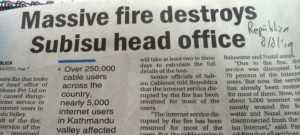
However, this fieldwork trip has been very successful to date. We have co-organised two well attended meetings, one on the introduction of CPD in Nursing led by Dr. Bibha Simkhada (see previous BU blog here) and one Consultation meeting on migration and health research led by Dr. Pramod Regmi, both run in collaboration with BU’s Visiting Professor Padam Simkhada. Moreover, I was invited to speak at an international sociology conference last Sunday here in Kathmandu which I did not even know was going on till two days before. I had to pleasure of meeting our midwifery friends in Nepal as well as a representative of the German Aid Agency GIZ. We managed to have dinner in Kathmandu with loads of colleagues and friends who work with BU in one form or another, including one of my recent co-authors from the University of Tokyo who happened to be in Nepal.
Prof. Edwin van Teijlingen
CMMPH
Dr Zoe Young is one of those rare creatures: an academic organisational sociologist and practising consultant to industry for the development of gender-equitable policies around the issue of flexible working. She has recently published an important research monograph, based on her PhD, exploring the experiences of flexible working among working mothers. In WAN we were very pleased that Dr Young accepted our invitation to share her interesting findings to an engaged, mixed audience of academics and professional services, with a lively discussion ensuing.
Flexible working is often mooted as the panacea for gender-based inequities in the workplace in terms of stalling and interrupted career progression and gender pay gaps. Moreover, this is primarily a gendered issue as flexible working is most likely to be requested by women, and this for the equally gendered reason that it is mostly women who are expected to adapt their working lives to the demands of childcare.
The conventional argument for flexible working (which is different from part-time working) is that this will help women to balance family and work time better and in consequence will overcome gendered career inequities. But does it?
Dr Young’s research suggests otherwise, pointing out that there are multiple variations of flexible working that could potentially be offered to employees from a currently very limited menu. Not only is the menu unimaginative and meanly populated, but while women have a legal right to request flexible work, companies are under no legal obligation to comply. Her research illustrates the unnecessary stressors and casualties caused to women workers by organisations unwilling to adapt to employees’ changing circumstances – and how flexible working, as it is currently practiced, far from being a solution, may add to the issues that disadvantage women in the workplace.
At BU the benefits of promoting flexible working is being seriously explored by the Equal Pay Review Committee and by Athena SWAN committees. It is recognised that all posts ideally should be flexible working ones and that male colleagues should also be encouraged to consider new working modes in order to spread the potential benefits. However, as Dr Young’s research suggests, a very important outcome of ensuring greater gender representation for flexible working, is that it would also serve to minimise the currently feminised disadvantages associated with that elusive pursuit of a better work-life balance.
Following a competitive bidding process, Emma Keene and Julia Karol (BSc Marketing, final year students) have been successfully awarded this year ‘staff student co-creation award’. Emma is awarded for the project’ The contour generation’ which looks into the negative impact of social media on millennial’s mental health. Emma is mentored by Samreen Ashraf.
Whereas Julia’s project, “The snob effect” looks into the impact of Instagram influencers on the consumption of luxury fashion”. Julia has worked under the supervision of Dr. Elvira Bolat.
Congratulations to both the winners!
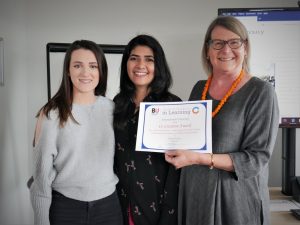
Overview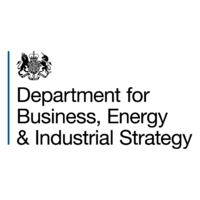
The Secretary of State for Business, Energy and Industrial Strategy and the Minister of State for Universities, Science, Research and Innovation have commissioned Professor Sir Adrian Smith to provide independent advice on the design of future UK funding schemes for international collaboration, innovation and curiosity-driven blue-skies research. There is a written call for evidence to inform this advice, and BU is preparing an institutional response to this call.
Further information can be found in the call for evidence document, and associated Terms of Reference.
How to contribute
If you would like your feedback to be included in the institutional response, please complete the feedback form and send to Lisa Andrews, RDS Research Facilitator by Wednesday 15th May.
This week saw the successful launch of an important new partnership between Bournemouth University (BU), the local NHS, charities and industry. The aim is using innovation to drive forward improvements in healthcare outcomes for people across Dorset. This ‘Transforming Healthcare Through Innovation’ event marked the start of a formal partnership between BU and Dorset’s Integrated Care System (ICS), which is a partnership of all NHS and local authorities in the county. This partnership fits very well with BU’s Strategic Investment Area (SIA) Medical Science. The development of Medical Science is a core component of BU2025. 
It was widely recognised that the social and behavioural sciences are essential to health and health care. Dr. Phil Richardson from the NHS Dorset Clinical Commissioning Group, who leads the ICS, stressed the importance of moving from a medical model of public health to a more social model. This ties in closely with sociological work on the medical/social model conducted at BU in maternity care [1-6].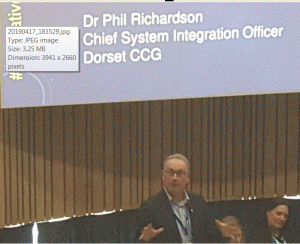
 Also at the launch event Dr. Caroline Ellis-Hill highlighted the importance of humanising care in a hands-on session. BU academics in have developed a philosophically-driven approach to caring, health and wellbeing based on humanising practices. The theoretical underpinning was originally developed by BU Prof. Les Todres and colleagues [7-11]. Humanising practice is supported by work settings that encourage connection to personal experience and research which privileges subjective experience and knowing; such as phenomenology, narrative, auto-ethnography, embodied knowing and arts–based approaches.
Also at the launch event Dr. Caroline Ellis-Hill highlighted the importance of humanising care in a hands-on session. BU academics in have developed a philosophically-driven approach to caring, health and wellbeing based on humanising practices. The theoretical underpinning was originally developed by BU Prof. Les Todres and colleagues [7-11]. Humanising practice is supported by work settings that encourage connection to personal experience and research which privileges subjective experience and knowing; such as phenomenology, narrative, auto-ethnography, embodied knowing and arts–based approaches.
Centre for Midwifery, Maternal & Perinatal Health
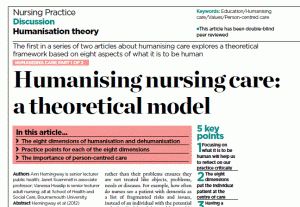
References:

Smart is the new name for Innovate UK’s ‘Open grant funding’ programme.
Innovate UK, as part of UK Research and Innovation, will invest up to £20 million in the best game-changing or disruptive ideas with a view to commercialisation.
All proposals must be business focused, rather than pure research. Applications can come from any area of technology (including arts, design, media or creative industries), science or engineering and be applied to any part of the economy.
Summary:
Call open: 18 February 2019, Monday
Call close : 24 April 2019, Wednesday
Available funding : between £25,000 and £500,000 (for single company or collaboration); between £25,000 and £2m (for collaboration only)
Duration : between 6 and 8 months (for single company or collaboration); between 19 and 36 months (for collaboration only)
Please see this link for more information.

Innovate UK, through the UKRI’s Strategic Priorities Fund is investing up to £6million in collaborative, business led research and development (R&D) projects.
The aim of this competition is to solve industry-focused major cyber security-related challenges in the Internet of Things (IoT). You should include a plan to test nearer-to-market interventions and experiments in real environments.
Summary:
Competition opens : 18 February 2019 (Monday)
Competition closes : 1 May 2019 (Wednesday; noon)
Funding available : Your project’s total eligible costs must be between £2.5 million and £4 million and you can request up to £2 million grant.
For more information, please refer to this link.

Image from tbat.co.uk
The Industrial Strategy Challenge Fund invites proposal from researchers interested in research projects to develop battery related characterisation analytical techniques and capabilities.
This call is expected to lead to new characterisation and analytical techniques which will have the effect of strengthening the UK’s leading position in electrochemical energy storage technology, providing our battery researchers with world leading methods and capabilities to advance their research. In short, we are looking for a revolution in battery research and a “business as usual” approach will not be deemed sufficient.
Summary:
Closing date : 4 April 2019
Available award : £500,000 (up to £2million available for up to four awards)
Project duration : 21 months
For more information, please visit this link.
IMPORTANT : If you are planning to submit an application you must register your intent by completing the short survey at the bottom of this page by 14 March 2019 16:00.